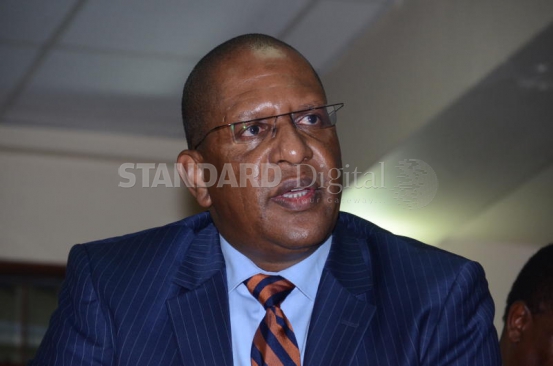
“I have the final word on corruption files forwarded to my office by the Ethics and Anti-Corruption Commission (EACC).” These are the words of Director of Public Prosecution Keriako Tobiko in response to EACC’s recommendation for closure of corruption files against three Cabinet Secretaries, a senator and a governor.
“The files from the EACC shall be independently reviewed and a decision thereon made,” said Tobiko in a signed press statement dated June 5, 2015. Tobiko further told The Standard on Sunday in a telephone interview: “The files are being processed and their fate will be made known within this week.”